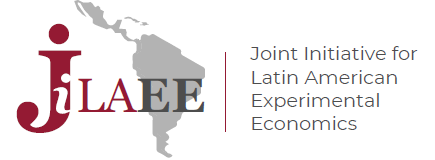Gendered Beliefs and the Job Application Decision: Evidence from a Large-Scale Field and Lab Experiment
This paper investigates how workers' job application decisions are affected by their beliefs about hiring managers' beliefs regarding the relative productivity of women and men. To this end, I combine a natural field experiment with a lab experiment. In the field experiment, I partner with a firm to solicit approximately 5,000 job applications using ads that randomize over the gender of the hiring manager and the gender associations of the product sector. I then recruit the same job-seekers to a structured online lab experiment to elicit their beliefs about hiring managers' beliefs, based on the manager's gender and product sector. Truth-telling is incentivized with the Binarized Scoring Rule, using a procedure I adapt from Dustan, Koutout, & Leo (2020). I find that men are more likely to apply for a job with a manager whom they believe has beliefs that favor men more. A one standard deviation increase in beliefs about the manager's beliefs increases the probability a man applies by 30%. On the other hand, women are unresponsive to their beliefs about managers' beliefs. These results have important implications for the sorting by gender behavior driving a large part of the gender wage gap.
